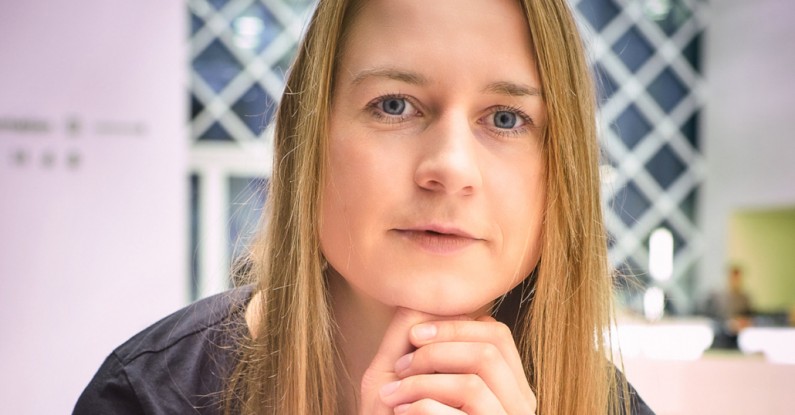Prof. Dr. Maren Urner studied cognitive science and neuroscience. She currently teaches media psychology at the HMKW – University for Media Communication and Economy in Cologne. In 2015 she co-founded the online magazine Perspective Daily, the first ad-free format for constructive journalism in the German-speaking world. In an interview with Tilo Bonow, she explains by which means politicians and business representatives can persuade people and communicate in a goal as well as solution-oriented manner, even when faced with difficult decisions such as in the current Corona crisis.
This is a short excerpt from our podcast Business Class. The full episode with Prof. Dr. Maren Urner can be found on Anchor, Apple Podcast, Soundcloud & Co in German.

Tilo Bonow: Dear Maren, I am very happy that you joined Business Class today. Regarding the current Corona situation and the media coverage: with what kind of news did you start your morning today?
Maren Urner: I actually start most of my days with Deutschlandfunk. Usually quite “old school” listening to it on my good old radio that I still have at home. And when I’m out and about on the app. This gives me a first news overview and thus a good start into the day.
Tilo Bonow: Could you give us an insight into your professional world? You are not only a neuroscientist, but also a media psychologist. What topics do you deal with exactly? And what are the questions you are asking yourself?
Maren Urner: The area that most significantly shapes my thinking and acting is definitely the big topic of information processing. Broken down into two core questions, for me this means: Why are we all different in our information processing? And consequently, why do we all act differently? As a matter of fact, thinking is already part of the action. Even if you look at such apparently “simple” matters such as colours, we can see that people perceive them differently. So we can only guess how many levels of interpretation there are in major political, societal and social contexts that influence our view of the world.
Communication is therefore not only a means to an end, but also a constant challenge! Even if we all speak the same language – in our case German – we do not always glean the same meaning from the same words. To begin with, take powerful words such as reason, freedom, fear, future or sustainability, we all have a different concept of their definition.
Tilo Bonow: In this sense, would you agree that our view of the news is essentially shaped by our personal history and experiences?
Maren Urner: Absolutely!
Tilo Bonow: Essentially, then, your journalistic work is about generating different perspectives in media reporting and in personal information processing?
Maren Urner: That’s right. You mentioned a very important term: perspective. The term “perspective” also plays a central role in our company Perspective Daily, which I co-founded. What we are all about is changes in perspective and thereby developing a constructive and solution-oriented way of thinking.
This inevitably leads to the third key question, which matters a lot to me: What is this actually all about? Why are we even talking? The core of many communicative dead-end situations is the search for scapegoats. Instead, we should ask more often: Where are we actually going? As it is of fundamental importance to define a clear goal and, in the next step, to see how this can be achieved – or at least approximated.

Tilo Bonow: If you look at the current Corona crisis, it is noticeable that communication is moving in a certain direction. To what extent does it play a role in having a common enemy or focusing on clearly defined communication?
Maren Urner: This “common enemy” that you are addressing characterizes a very important phenomenon in psychology: the so-called “tribal thinking”, or Ingroup and Outgroup thinking.
Currently we are experiencing something historically very rare: We all have defined a common enemy, which is the fight against the virus, and it involves and affects all of us. t will be interesting to see to which extent media-driven communication will influence the situation. Which words are being used? Are we actually talking about a “fight”? Are we even talking about a “war”? The latter has already been strongly criticised. Particularly in this currently critical phase, when people are beginning to long for normality, we also have to think of goals that we can achieve together. What should these common goals look like and how are they being communicated? What is the Ingroup and who or what is the Outgroup? And how can we remain focused on the common goal?
Tilo Bonow: Specifically during the Corona crisis, it is extremely difficult to draw up a clear objective. The virus will not disappear, but will return again and again – like the flu. This is also why many people are currently beginning to resent the counter measures. A feeling prevails that many measures have been made haphazardly, without comprehensible reasons But people yearn for ambiguity.
Maren Urner: That’s right. We need to raise awareness. To this effect, we can – and should – take science as a guide. It would be helpful to clearly define thresholds to have clear parameters as to how restrictions can be relaxed and when to introduce those measures. This is the scientific tool we have available for this purpose.
But first we have to decide how we want to communicate this. In my opinion, for example, it is a bad approach to discuss specific square meter figures when it comes to reopening stores. Instead, in my role as a journalist, my responsibility is to inform people about the present problems that contribute towards the joint achievement of objectives. And not to get sidetracked by sideshow but by continuously asking ourselves: what is this actually about?

Tilo Bonow: However, in media coverage not only the problem is important but also the headline. People are more likely to react to negative headlines than to positive ones. Why do we find it so difficult to read positive news? How about “Our digital transformation profits from the crisis and accelerates”? You rarely get to see those. One negative headlines chases the next.
Maren Urner: I agree with you that the news coverage is too negative. In fact, numerous studies confirm that media reporting does not reflect reality because it is too negative. This automatically leads to people developing a world view that is too negative.
Applied to the current situation: We all have seen pictures of looted supermarket shelves in a continuous loop. These images lead to a distorted representation of the actual situation and thus to corresponding actions, such as stockpiling.
Why is that? We all have a negativity bias, so we all have a preference for negativity. Nowadays a large part of the journalistic job description consists of critical questioning and addressing things that go wrong – the so-called sentinel function. So our preference for the negative adds up with the focus on just that – a vicious circle. By the way, from an evolutionary biologist’s point of view, it makes sense to pay more attention to the negative than to the positive. In times of sabre-toothed tigers and mammoths, a missed negative information could mean death. However, in our digital age, the sabre-toothed tiger potentially sits “outside of our cave” or rather “on our smartphone” every minute and thus interrupts in intervals the entire day. Nevertheless, our brain is not designed to constantly process negative things. Research shows that fear and panic paralyze us and lead to bad decisions. This kind of stress blocks access to our higher cognitive abilities and learning experiences – and we literally make “dumber” decisions. This is exactly why news should always ask “What now?” in order to enhance social debates – in other words, we need to look at problems in a solution-oriented way. Only then good solutions can be created.
Tilo Bonow: Negative news must be communicated not only in politics and society, but also in economy. How would you advise to entrepreneurs who have to prepare their team for negative situations on the one hand, but also want – and need – their team’s support on the other hand? Especially regarding Corona?
Maren Urner: An important component in solution-oriented communication is not to communicate in a fatalistic way. This is where the concept of psychological safety plays an important role. The decisive factor here is that all team members – or in this case the employees and everyone involved in the company – feel that they are psychologically safe.
The core challenge in these uncertain times is to try out and establish solutions that were previously unthinkable. This surprisingly works out quite well as we are currently living in a time that was previously unimaginable – many things are simply crazy. What is more, it only works out if ideas and new ways of thinking are allowed to come from all different levels. So instead of hierarchical structures, create spaces in which everyone is equal so that there is room for a wide range of ideas and possibilities.
Another important aspect is to admit failure. We must come to terms with a situation that is new and unknown on a number of different levels. It doesn’t matter whether it is about loosening up measures, speaking about medication, hand washing or the compulsory use of masks. It is simply necessary to develop an awareness within the company to be able to address mistakes and to learn from them in order to make the necessary adjustments with that common goal in mind.
Tilo Bonow: A nice, motivating closing remark! Dear Maren, thank you very much for your time, it was a very inspiring discussion. All the best for you personally, I hope you get through these challenging times well. Thank you very much and all the best.
Maren Urner: Thank you very much and of course all the best for the future.

About the Host:Tilo Bonow is founder and CEO of PIABO, Europe’s leading Full-Service
PR partner for the digital industry based in Berlin. He established PIABO with the mission to support globally ambitious tech entrepreneurs with launching their business ideas and actively recognizing potential, achieving growth targets and ultimately conquering the market. As a value adding investor at Cavalry Ventures, 500 Startups, Cocoon Capital, Infinity Ventures, Unlock Ventures and Capital300, he accelerates the growth of upcoming business stars utilising his experience and network. Tilo is keynote speaker at international tech conferences such as NOAH, DLD and MWC as well as a passionate and active supporter of the digital ecosystem as a mentor at Plug & Play and Microsoft Ventures, among others.


